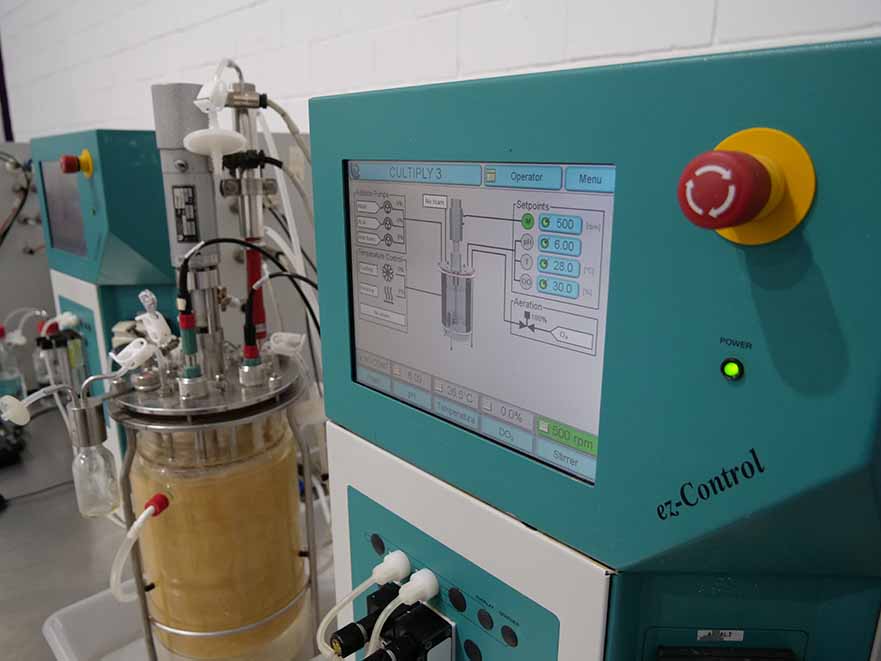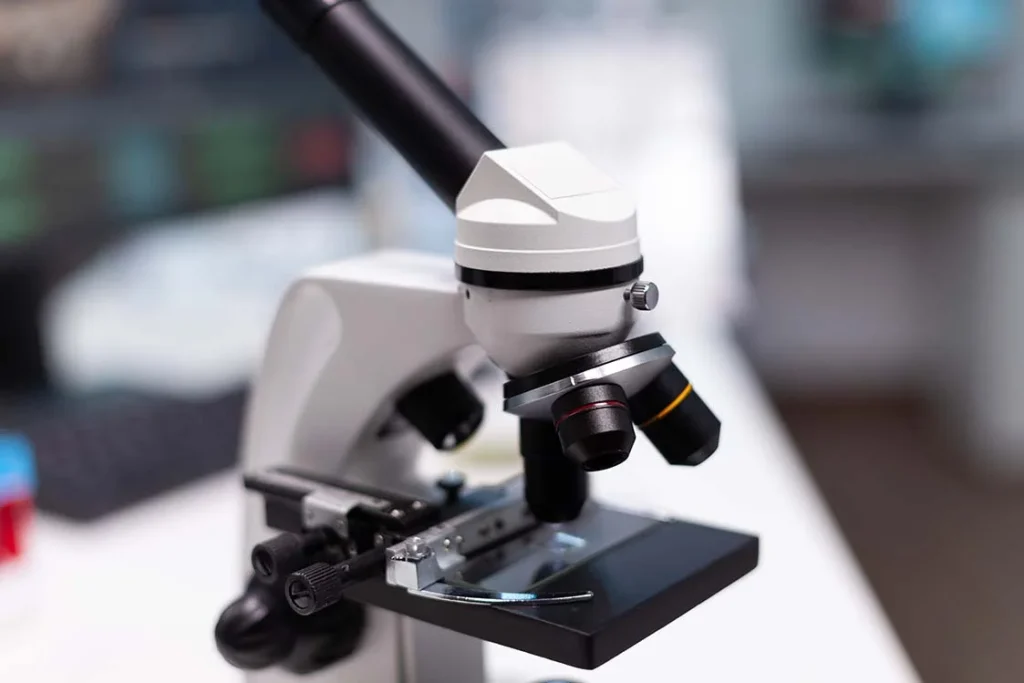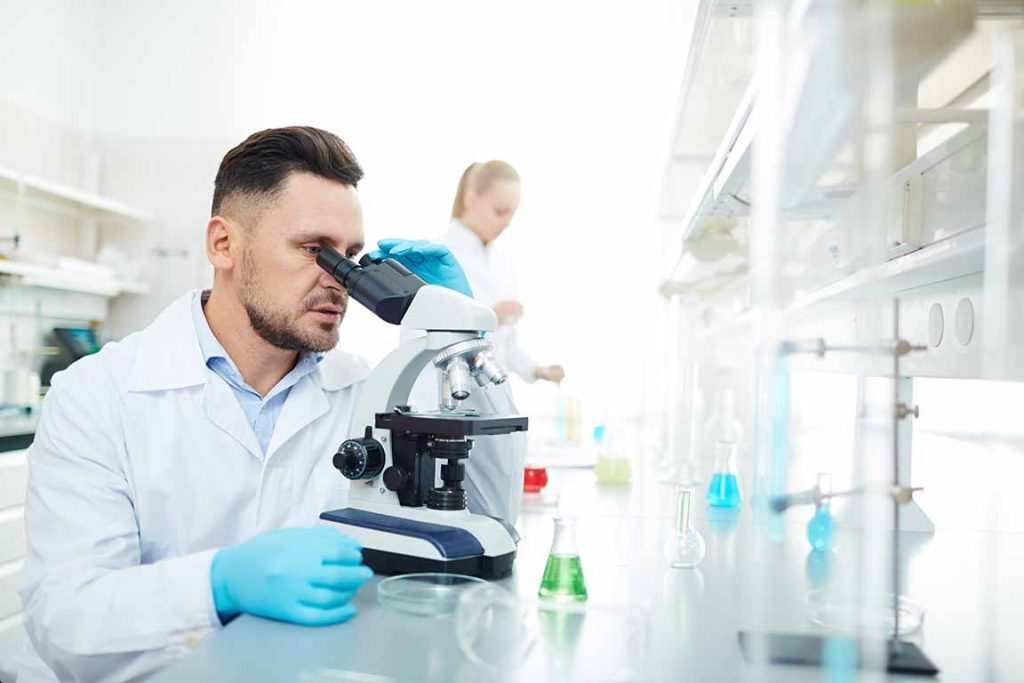In the field of biotechnology, industrial microbiology plays a vital role in the production of various products by harnessing microorganisms and their properties. From the pharmaceutical to the food industry, and even the environmental sector, industrial microbiology has revolutionised biotechnological processes by optimising production and offering sustainable solutions.
INDUSTRIAL MICROBIOLOGY: DEFINITION AND SCOPE
Industrial microbiology is defined as the study and application of microorganisms in industrial processes. These microorganisms, such as bacteria, fungi, and yeasts, are used to produce and apply a wide range of products and services. Through fermentation techniques and other bioprocesses, it is possible to obtain chemicals, foods, ingredients, medicines, enzymes, and bioplastics, among others.

APPLICATIONS OF INDUSTRIAL MICROBIOLOGY
Pharmaceutical Industry
Industrial microbiology has transformed the production of medicines by enabling the synthesis of pharmaceutical compounds through genetically modified microorganisms. Using bacteria and yeasts for the production of antibiotics, vaccines, probiotics, and other therapeutic products has significantly improved the efficiency and quality of these medicines, contributing to human health.
Food Industry
Industrial microbiology also plays a crucial role in the food industry. Microorganisms are utilised in the fermentation of products such as bread, yoghurt, cheese, and wine, enhancing their flavour, texture, and nutritional properties. Additionally, the production of enzymes, alternative proteins, and food additives through industrial microbiology has enabled the development of safer and more sustainable products.
Environmental Applications
In the environmental sector, industrial microbiology is employed for wastewater treatment, biogas production, and the bioremediation of pollutants. Microorganisms play a fundamental role in breaking down toxic compounds, facilitating efficient and sustainable environmental recovery. Some microorganisms are also used as biofertilisers to promote plant growth, replacing chemical fertilisers and offering sustainable pest control solutions.
Circular Economy
There are numerous examples of bioprocesses where microorganisms are fed with by-products to generate high-value compounds, such as probiotics, biofertilisers, or biostimulants. These processes allow the reuse of low-cost raw materials with significant environmental impact, reintegrating them into the supply chain.

TECHNOLOGIES AND ADVANCES IN INDUSTRIAL MICROBIOLOGY
Fermentation and Bioreactors
Fermentation is a central technique in industrial microbiology. Bioreactors are utilised to control and optimise the growth conditions of microorganisms, ensuring efficient and scalable production of biotechnological products. Solid and liquid fermentation offers a broad range of applications and opportunities across various industrial sectors.
Genetic Engineering and Microorganism Modification
Thanks to genetic engineering, microorganisms can be modified to enhance their production capacity and adaptability to different substrates. By manipulating their genetic characteristics, more efficient and productive strains can be developed. This technique has driven the creation of new microorganism strains capable of producing industrial compounds more cost-effectively and sustainably.
Process Monitoring and Control
Industrial microbiology benefits from advances in process monitoring and control technologies. Online monitoring systems, sensors, and data analysis allow precise control of key variables in fermentation and other biotechnological processes. This ensures real-time tracking of microbial activity, optimising production and improving the quality of the final product.
Artificial Intelligence
Artificial intelligence (AI) is revolutionising fermentation processes by providing new opportunities and enhancements. By analysing large datasets and applying advanced algorithms, AI can optimise fermentation conditions, predict and control product quality, and detect potential issues or contaminations early. This enables the industry to increase efficiency, reduce costs, and improve the consistency and quality of products obtained through industrial microbiology.
PRACTICAL EXAMPLES OF INDUSTRIAL MICROBIOLOGY
- Antibiotics Production: Microorganisms such as actinomycetes are used in the fermentation process to produce key antibiotics like penicillin, erythromycin, and tetracycline.
- Biofertilisers and Biostimulants: Industrial microbiology offers eco-friendly alternatives to chemical fertilisers by producing biological compounds that nourish plants, enhance soil health, and support sustainable agriculture.
- Bioethanol Production: Yeasts ferment sugars from biomass to produce bioethanol, a renewable biofuel that reduces reliance on fossil fuels.

Industrial microbiology has proven essential in improving and optimising biotechnological processes across various sectors. Its applications in the pharmaceutical, food, and environmental industries have brought about significant advancements, offering efficient and sustainable solutions.
At Cultiply, we specialise in harnessing the latest advances in industrial microbiology to deliver innovative and tailored solutions for our clients. From microorganism selection and genetic modification to bioreactor design and advanced monitoring technologies, we provide end-to-end support to maximise the potential of biotechnological processes, driving growth and competitiveness.
















